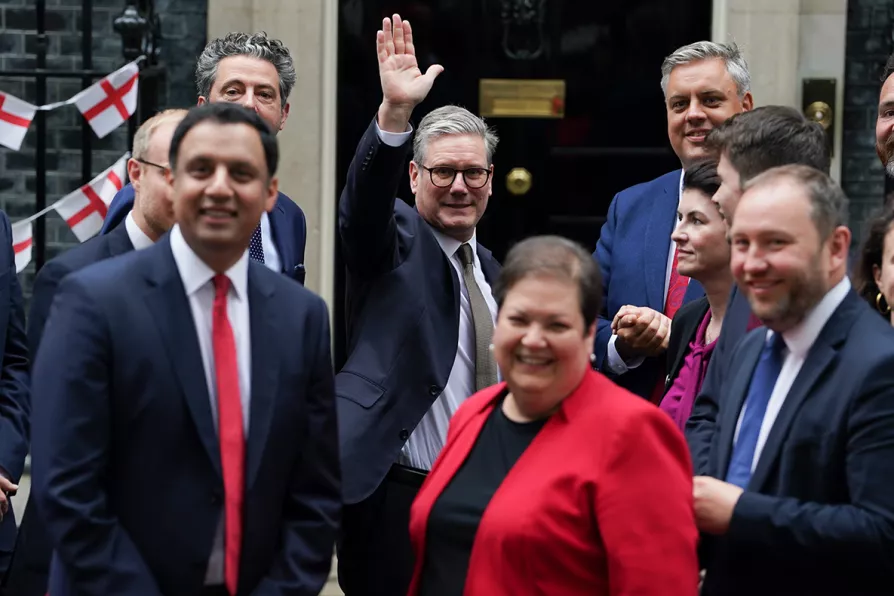Channel 4’s Dirty Business shows why private companies cannot be trusted with vital services like water, says PAUL DONOVAN

 Prime Minister Sir Keir Starmer poses for a photograph with the new intake of Scottish Labour MPs outside no 10 Downing Street, London, July 9, 2024
Prime Minister Sir Keir Starmer poses for a photograph with the new intake of Scottish Labour MPs outside no 10 Downing Street, London, July 9, 2024
SPEAKING from 10 Downing Street, newly elected Prime Minister Keir Starmer said that the country had voted “decisively for change” and “for national renewal and a return of politics to public service.” Neither claim could be further from the truth.
Never has a government with so large a majority been elected less “decisively.” No claim to bring about change has rung hollower, though both governing parties have repeatedly made such claims to dissimulate the continuity of their common commitment to unpopular neoliberal policies.
Starmer’s “responsible” manifesto promised very little to working people, while showering generous subsidies, low taxes, lucrative contacts and permissive deregulation on big corporations and the rich, both British and foreign. Promises of increased social spending are predicated on growth that is unlikely if neoliberalism prevails, and such social spending as is undertaken will involve contracting services out to greedy big corporations, as Wes Streeting, the new Health Secretary, has already indicated.

Every Starmer boast about removing asylum-seekers probably wins Reform another seat while Labour loses more voters to Lib Dems, Greens and nationalists than to the far right — the disaster facing Labour is the leadership’s fault, writes DIANE ABBOTT MP

While Reform poses as a workers’ party, a credible left alternative rooted in working-class communities would expose their sham — and Corbyn’s stature will be crucial to its appeal, argues CHELLEY RYAN

Sixty Red-Green seats in a hung parliament could force Labour to choose between the death of centrism or accommodation with the left — but only if enough of us join the Greens by July 31 and support Zack Polanski’s leadership, writes JAMES MEADWAY

With Reform UK surging and Labour determined not to offer anything different from the status quo, a clear opportunity opens for the left, argues CLAUDIA WEBBE










